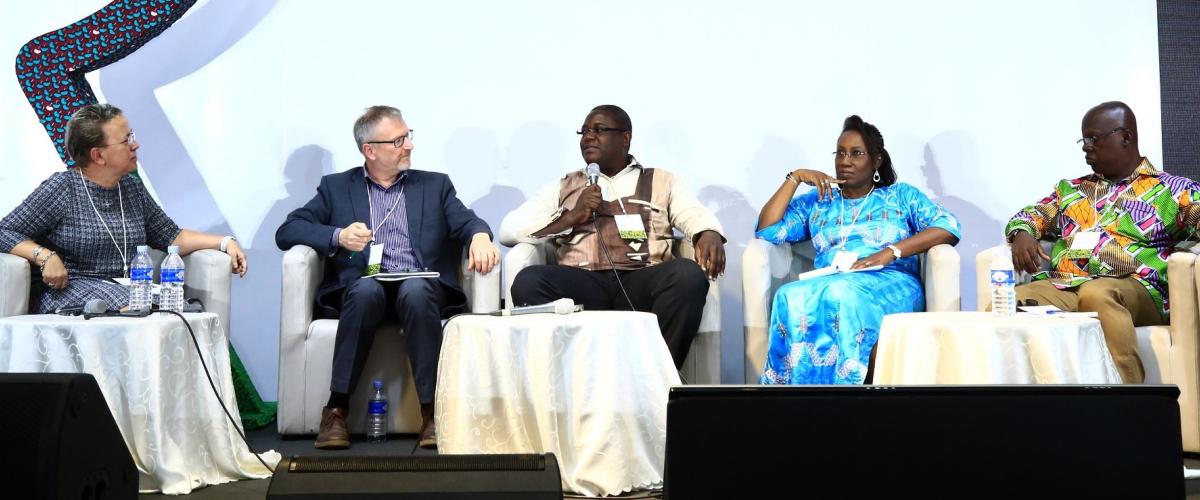
Events
Past Events
11:30-12.30 | Location: Room 401+402+403
Speakers: James Myazoe, Republic of the Marshall Islands; Ahmed Aiman Shareef, Republic of Maldives; Naomichi Murooka, Japan International Cooperation Agency; Jessica Schmidt, World Bank; Rui Su, City Resilience Program
Moderator: Jian Vun, World Bank
09:30-10:30 | Location: Room 401+402+403
Speakers: Seyi Makinde, Governor, Oyo State, Nigeria; Ross Eisenberg, Disaster Risk Management Specialist, City Resilience Program; Philip Ward, Senior Climate Adaptation and DRM Specialist, Professor of Global Water Risk Dynamics; Blair Splendelow, Technical Director, JBA Consulting; Karel Keijnert, Senior Water Management Consultant, Royal Haskoning, DHV
17:30-18:30 | Location: Medium Hall
Speakers: Daniel Sullivan, Director, Risk and Resilience, City of Cape town; Dileep Mavalankar, Director IIPHG/Disaster Risk Management Consultant, Indian Institute of Public Health/World Bank; Ross Eisenberg, Disaster Risk Management Specialist, City Resilience Program; Nuala Cowan, Disaster Risk Management Specialist, Digital Earth Partnership, GFDRR
2:30 p.m.-3:15 p.m. | Plenary
Participants: Hideyasu Kiyomoto, Mayor, Himeji City, Japan; Luisa Salgueiro, Mayor, Matosinhos City, Portugal; Hadianto Rasyid, Mayor, Palu City, Indonesia
Chair: Guangzhe Chen, Vice President for Infrastructure, World Bank
Moderator: Ming Zhang, Urban Global Lead and Practice Manager, GPURL, World Bank
11:30-12:30 | Location: Small Hall
Speakers: Teresito Bacolcol, Director, Department of Science and Technology, Philippine Institute of Volcanology and Seismology; Masato Akashi, Chief Consultant, Pacific Consultants Co., Ltd.; Ross Eisenberg, Disaster Risk Management Specialist, City Resilience Program; Ignacio Urrutia, Senior Disaster Risk Management Specialist, World Bank
The World Bank Tokyo Development Learning Center (TDLC) in collaboration with the Sustainable City Infrastructure and Services Global Solutions Group (GSG), the Global Facility for Disaster Reduction and Recovery (GFDRR), the Disaster Risk Management and Resilience GSG, and the Climate-Smart Cities Community of Practice (CoP) is organizing a Technical Deep Dive (TDD) on Cities and Climate Change from March 11 to 15, 2024 in Tokyo and Kyoto. Delegations from seven countries and the World Bank staff, consisting of approximately 30 representatives from World Bank client countries engaged in urban development projects, will participate in this Technical Deep Dive (TDD).
This deep-dive session aims to foster discussions among operational teams on the critical need for tailored and contextualized approaches to EWS implementation in FCV settings, in order to enhance community resilience in the face of climate and disaster risks.
